Nataliya Bondar is a co-founder of the newspaper “Visnyk Starobilshchyny.” She now collaborates with the Starobilsk city military administration, which relocated from the temporarily occupied territory of Luhansk to Lviv. She shared her evacuation story, X-ray interrogations, and her husband at the front with NUJU correspondents.
“My phone book got thinner that day: fewer friends and colleagues.”
Nataliya and her family didn’t prepare for a full-scale war, although she began receiving worrisome messages as early as December 2021.
– My daughter was a winner of the ‘Flex’ program, and she was in America at the time. She started writing to me every day, saying she was hearing news that all Americans were saying, ‘There will be a war.’ My first desire was to reassure my daughter, but I had my own growing concerns, – Nataliya Bondar began her story. – In the end, my child voluntarily terminated her participation in the program, even though she was supposed to stay until May. She said she couldn’t be far from us when the war was about to start. She flew back to Ukraine at the end of January.
Only 100 kilometers separate Starobilsk from Russia. On February 24, Nataliya and her family woke up to explosions. Her daughter’s warnings had come true.
– I can’t always give a clear answer about the morning of February 24 because my memory seems to block negative emotions, – says Nataliya. – But I remember the disbelief in everything that was happening. Although on that day, friends from around the world, including Russia, were calling me because I studied at Rostov University back at the beginning of our independence. I thought they were my friends, but then it became clear that I had fewer friends, especially from university. In general, my phone book got thinner that day: fewer friends and colleagues. I screamed at one friend on the phone, saying that Russia was trying to destroy us, to which she replied, ‘Nataliya, you’re a smart woman: this is a special operation, and it will end soon.’ And that was probably the scariest part—that not just ordinary citizens, but journalists—people with higher education and not just higher education but people who shape public opinion—were saying such things.
What can be said about former classmates from Russia when Natalia became an enemy for her relatives from Luhansk!
– I have close relatives who live in Luhansk, and in 2014, they stayed there. To maintain communication, we almost never touched on the topic of war all this time. But in the past year, they started making aggressive statements. My own uncle called my mother, my own sister, a Bandera supporter [Stepan Bandera, a controversial figure in Ukrainian history. Stepan Bandera was a Ukrainian nationalist and independence activist who lived during the 20th century.] because she spoke Ukrainian! She spoke Ukrainian just as she had all her life! So, from 2014 to 2021, their minds were pretty thoroughly washed. Russian propaganda has done its job, – says the journalist.
“People came out with Ukrainian flags, trying to stop armored vehicles barehanded.”
Arguing and convincing people who were subjected to Russian propaganda for many years made no sense. Nataliya left the fight against this severe ailment for later and, at the beginning of the war, informed the population as best she could, together with like-minded people.
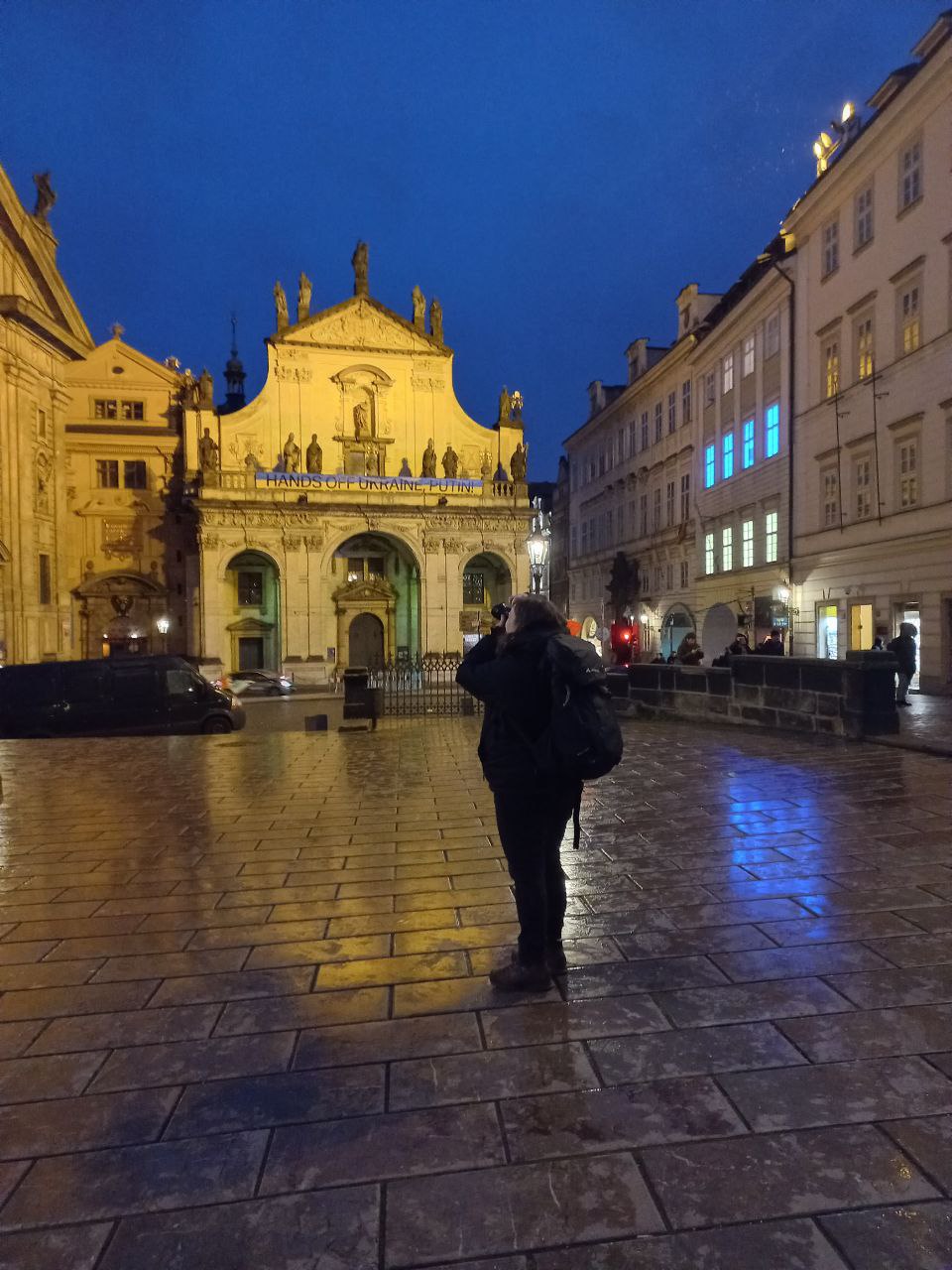
– As a journalist and a representative of local self-government, I understood that we needed coordination, – says the media professional. – If we were scared and didn’t know what to do, other people, especially since they didn’t have complete information, were even more lost. We gathered in the city council—it was an improvised headquarters. In the following days, mass shelling of Sievierodonetsk, Lysychansk, and Rubizhne began, and we immediately received refugees. We had to accommodate thousands of people. Humanitarian work began, and we also had to coordinate the work of local municipal services. The worst day for our city was the morning of February 25 when an airstrike hit a densely populated area. We woke up at 4 a.m. to a horrifying sound. There were casualties and injuries, significant destruction. The battles were getting closer to us. Every day, there were discussions about where and on which road a column of tanks was moving. Despite such an environment, I somehow held on because I had a lot of concerns and professional tasks. We blocked the website of the city council because it contained a lot of important information and documentation, including personal data. The only official source of information left was the city council’s Facebook page, and I constantly posted information there: where to turn, where pharmacies were operating, how to contact doctors, and other important things.
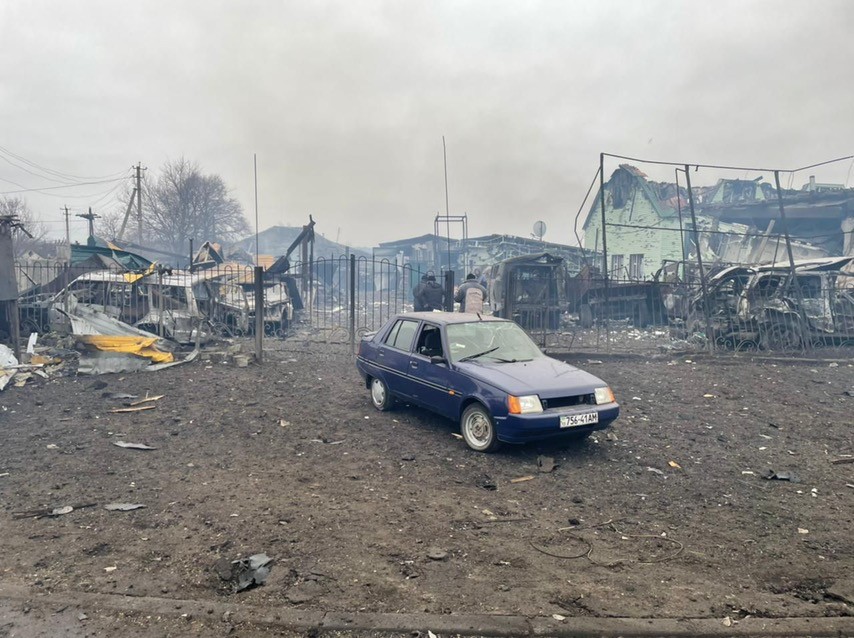
On March 2nd, Starobilsk was occupied. On the same day, the first protest rally took place. People came out with Ukrainian flags and tried to stop armored vehicles.
– We were among the first to be occupied. From the first days, the community united in their civic stance: Starobilsk is Ukraine. No one welcomed the occupiers with flowers, – recalls Ms. Bondar. – Of course, we couldn’t stop the tanks, but people expressed their position. On March 6th, we had the second rally: we gathered in the central square, and the head of the city council, Yana Litvinova, led the event. Our bravest guys took down the Russian flag that unwelcome guests had hung and replaced it with the Ukrainian flag. We marched to the commandant’s office. They started shooting at us, first into the air, fortunately not hitting anyone, but the rally was still dispersed. Over time, they began to arrest active participants one by one.
“When we got to the free territory, there was a feeling that we could finally breathe, and this is not a metaphor.”
For some time, Nataliya’s family remained in the city. Her elderly parents refused to evacuate. However, Nataliya understood that it would be dangerous for her and her husband to stay in the city.
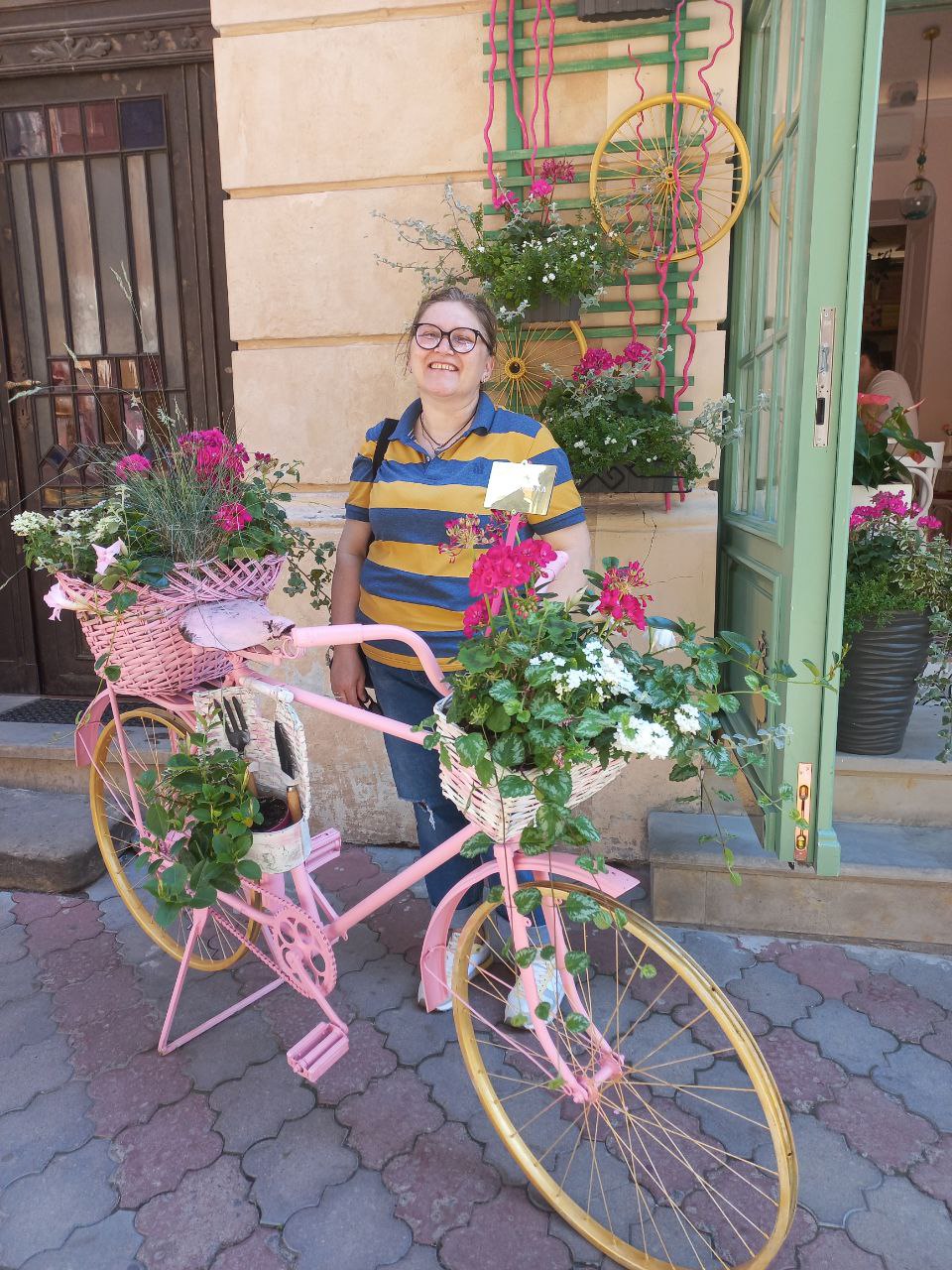
– I’m a journalist, and my husband worked in the municipal sector. With the situation in the city growing dangerous, we decided to leave on the evening of March 19th. We left via Russia and then through Latvia, avoiding Ukraine due to the risk of encountering numerous checkpoints controlled by occupiers. We left spontaneously, without fully understanding the reality. When we got to the free territory, there was a feeling that we could finally breathe, and this is not a metaphor. While walking the streets of my occupied city, no one approached me with a gun, but the fear and discomfort were palpable. Unfortunately, our journey took a harrowing turn at a Russian checkpoint, which turned out to be the worst four hours of our lives.
– They stripped my husband and searched for tattoos or signs of injuries. They asked if we had any connections to the Ukrainian Armed Forces or the Security Service of Ukraine. When they looked at our passports and saw the American visa for our child, they asked if the Americans had taught her to hate Russians. They wanted us to become refugees in Russia. Of course, before that, we cleared all our chats and messages and deleted the live broadcast from the rally. But I didn’t remove the letter to the Lviv school, where we planned to enroll our child in extramural studies because our local school had announced back in early March that everyone would be studying according to the Russian curriculum. So, I started looking for options for my daughter, sent a dozen letters to schools in different cities, and received an immediate response from Lviv. And then the occupiers hacked my email and saw the letter to Lviv. Our story about visiting friends in Moscow fell apart. They interrogated us for a long time and talked about the ‘fascists’ in Lviv. First, there was a general interrogation of the three of us, and then they interrogated each of us individually. They passed all our things through an ‘X-ray,’ not just clothes but also the car. It was the most horrifying memory, even worse than sitting in the apartment and listening to the sounds of cannonades. We thought they either wouldn’t release us or would send us back. A terrible feeling of fear.
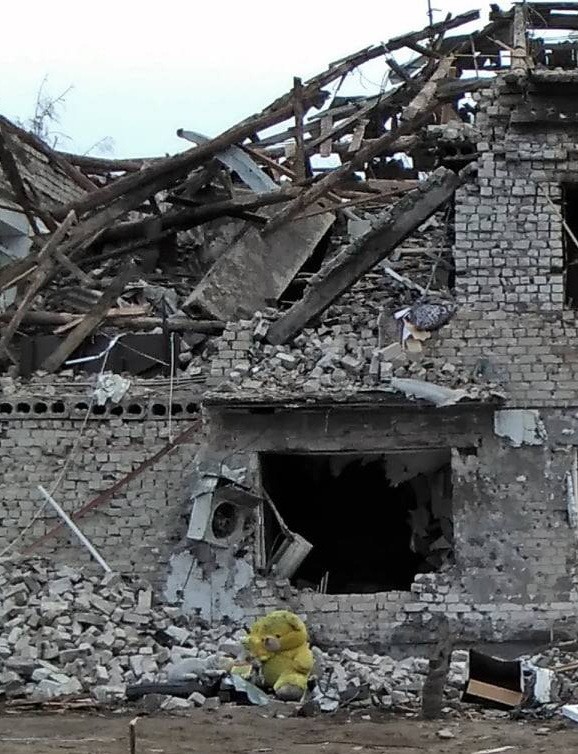
After the experiences they went through, Nataliya and her family traveled across Europe for two weeks. However, they eventually realized they wanted to return to Ukraine. During this time, many things happened. On the positive side, their daughter successfully enrolled in the Ivan Franko University on a government-funded program. So, the family settled in Lviv. Nataliya’s husband made the decision to go to the front lines.
– He decided to do everything so that our daughter could live and study in a free country, – the journalist explains. I worry a lot about him, and sometimes we can’t communicate for several days, but it’s his choice, and I respect that.
Now, Nataliya collaborates with the Starobilsk City Military Administration, which is territorially located in Lviv while Starobilsk remains occupied. She actively works in the field of humanitarian services, informing citizens about the administration’s work. Simultaneously, she manages the Starobilsk City Council’s Facebook page, which is followed by thousands of Starobilsk residents scattered around the world due to the war.
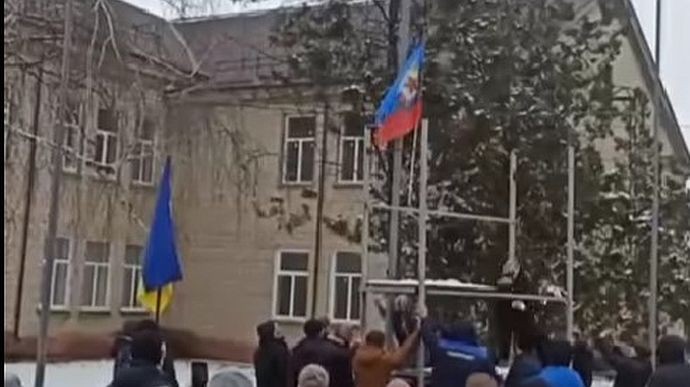
“I dream of going home. Not just home but to the places of happy people.”
– Among the unpleasant changes that have happened to me is that I don’t want to write as a journalist anymore; it’s quite challenging for me to be objective, – she shares. – I dream of going home. Not just home, but as the Skryabin band [Ukrainian musical band] once said, to the places of happy people. Because we were happy at home, we just didn’t know it. I dream of finally feeling like myself. I dream of releasing the first printed issue of my beloved local newspaper, ‘Visnyk Starobilshchyny,’ in the liberated Starobilsk. My colleague and I talk about it every time we build plans because I consider it a very important part of the significant work that awaits us after returning to the liberated territories. Lately, it feels like I’m living someone else’s life. It’s as if I’m looking at the world through the eyes of a movie character, and it’s unclear how the film will end. I want to get out of this state. I believe in Ukraine, in our Armed Forces. I love my country very much—something I didn’t deeply contemplate before. But now, I understand how much I love it. When they deprived us of freedom and the ability to make choices, I realized what a valuable thing it was!
This series, titled Executed Free Speech, is created as part of a project Drawing Ukrainian And International Audience’s Attention To Serious Violations Of Human Rights And Crimes Against Journalists And Mass Media By The Russian Federation, which is performed by the National Union of Journalists of Ukraine, with support from the Swedish non-profit organization Civil Rights Defenders.
JOURNALISTS ARE IMPORTANT. Stories of Life and Work in Conditions of War is a cycle of materials prepared by the team of the NUJU with the support of the Swedish human rights organization Civil Rights Defenders.
#CRD

 THE NATIONAL UNION OF
JOURNALISTS OF UKRAINE
THE NATIONAL UNION OF
JOURNALISTS OF UKRAINE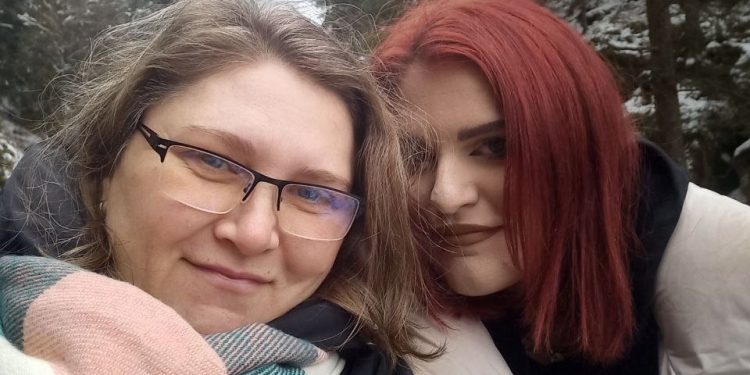
















Discussion about this post